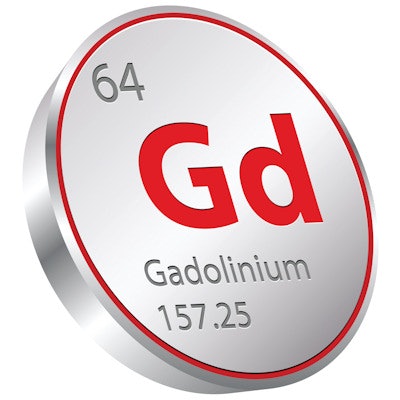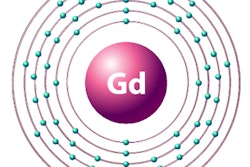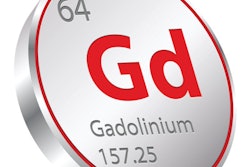
The U.S. Food and Drug Administration (FDA) is continuing to update its information for patients, clinicians, and other healthcare practitioners regarding gadolinium-based contrast agents (GBCAs) by adding eight GBCA products to its medication guide.
The May 16 announcement also encourages all outpatient imaging centers to provide the medication guide to patients undergoing GBCA-enhanced MRI scans for the first time. The recommendation adds a degree of enforcement to prior FDA policy, which does not require hospital inpatients to receive medication guides unless patients or caregivers request them.
"A healthcare professional who determines that it is not in a patient's best interest to receive a medication guide because of significant concerns about its effects may direct that it not be provided to that patient," the FDA wrote. "However, the medication guide should be provided to any patient who requests the information."
The following GBCAs have been added to the medication guide:
- Gadoterate meglumine (Dotarem, Guerbet)
- Gadoxetate (Eovist, Bayer HealthCare)
- Gadobutrol (Gadavist, Bayer)
- Gadopentetate dimeglumine (Magnevist, Bayer)
- Gadobenate dimeglumine (MultiHance, Bracco Imaging)
- Gadodiamide (Omniscan, GE Healthcare)
- Gadoversetamide (Optimark, Guebert)
- Gadoteridol (ProHance, Bracco)
This week's FDA action follows revised product labeling that went into effect in April for linear and macrocyclic GBCAs to include information on gadolinium retention. The updated labels include information on several conditions related to the administration of MRI contrast, including nephrogenic systemic fibrosis, acute kidney injury, and gadolinium retention. The labels also note that linear GBCAs "cause more [gadolinium] retention" than macrocyclic agents.
Gadolinium-based contrast agents have become a major safety concern in radiology with the publication of studies showing that gadolinium could be retained in patients long after MRI scans are performed. The FDA's approach to GBCAs has contrasted with that of European regulatory authorities, who have removed a number of linear GBCAs from the market.
Under fire from patient advocacy groups, the FDA tweaked its approach starting with a September 2017 recommendation from its Medical Imaging Drugs Advisory Committee (MIDAC) to update prescribing information for GBCAs to include a warning about gadolinium retention in certain organs and tissue. The FDA adopted that policy in December 2017.
Japan has also adopted new restrictions on the use of linear gadolinium-based contrast agents.



.fFmgij6Hin.png?auto=compress%2Cformat&fit=crop&h=100&q=70&w=100)




.fFmgij6Hin.png?auto=compress%2Cformat&fit=crop&h=167&q=70&w=250)











